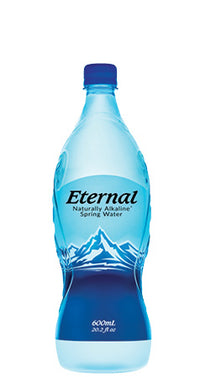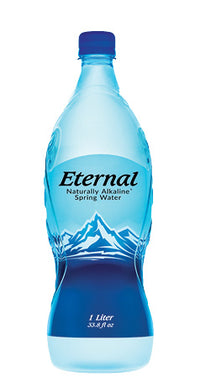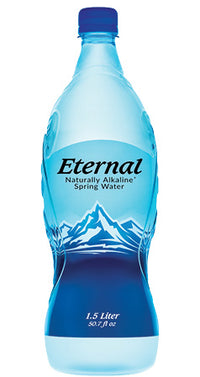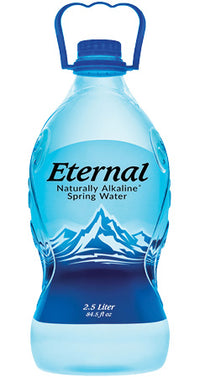
Water plays a vital role in everyday wellness, and today’s market offers more choices than ever before. Among the most talked-about options are alkaline water and electrolyte-enhanced water. While they may appear similar at first glance, these types of water are quite different in how they’re made, what they contain, and when people might choose to drink them.
This article explores those differences in a simple, educational way. Whether you're interested in how pH levels affect your water or curious about when electrolytes may be helpful, you'll come away with a better understanding of both options — and how they may or may not support your hydration needs.
What Is Alkaline Water?
Alkaline water is defined by its pH level, which is higher than that of regular drinking water.
While neutral water sits at a pH of 7, alkaline water typically measures between 7.5 and 9.5 on the pH scale. This higher pH is usually due to the presence of naturally occurring minerals like calcium, magnesium, and potassium — all of which may contribute to a smoother, more enjoyable taste.
Some people choose alkaline water as part of a wellness-focused lifestyle, appreciating its mineral content and refreshing flavor. While some believe it supports balance in the body or contributes to hydration, current scientific evidence is limited. Ultimately, many enjoy alkaline water for its taste and natural origin from underground springs.

For more on how pH works, check out our guide to understanding the pH of alkaline water.
What Is Electrolyte Water?
Electrolyte water is typically enhanced with minerals such as sodium, potassium, magnesium, and calcium — all of which help support the body’s fluid balance. These minerals are often added to water to replenish electrolytes lost through intense physical activity, sweating, or illness. In some cases, flavorings or sweeteners are also added to improve taste, particularly in sports and recovery drinks.
While these beverages may be helpful during high-intensity exercise, they often contain added sugars and may not be ideal for everyday hydration. Most people can stay well-hydrated through a balanced diet and regular water intake. It’s important to consider your activity level and individual needs before reaching for an electrolyte-enhanced drink.
Electrolyte water has a lower pH — meaning it’s more acidic than neutral water. The pH is typically around 6 or slightly below. This is because some formulations include acidic additives like citric acid or phosphates, which are used for flavor or preservation. In some cases, carbonation can also lower the pH, especially in fizzy electrolyte beverages.
Key Differences Between Alkaline and Electrolyte Water
Although both alkaline and electrolyte waters may support hydration, they differ in how they're produced, what they contain, and when people might choose to drink them. Below is a breakdown of their key differences:
At a Glance:
Alkaline Water
-
Typically has a pH above 7 (usually between 7.5–9.5)
-
Often contains minerals that raise pH either naturally occurring or added through processing (e.g., electrolysis or artificial mineral enhancement)
-
Usually has no added sweeteners or flavors.
-
Often chosen for taste and potential wellness support
-
Often preferred for everyday hydration
Electrolyte Water
-
pH can vary — often neutral to slightly alkaline, though some flavored or carbonated electrolyte drinks may be more acidic
-
Contains added electrolytes like sodium and potassium
-
May include sugar and flavoring, especially in sports drinks
-
Designed for intense activity or recovery situations
-
May not be ideal for routine, low-activity hydration
These differences can help you better understand how each water type fits into different hydration needs — whether you're looking for clean, mineral-rich spring water or something formulated for athletic recovery.
When Might You Choose One Over the Other?
Choosing between alkaline water and electrolyte water often comes down to your lifestyle and hydration needs. Both types of water can serve a purpose, but they’re not always interchangeable.
You may prefer electrolyte-enhanced drinks if you're recovering from heavy sweating, intense exercise, or illness, as these situations can lead to a loss of essential minerals. However, many of these beverages include added sugars or flavoring, which may not be necessary — or beneficial — during everyday activities.
On the other hand, alkaline water is often favored for daily hydration thanks to its smooth taste and naturally occurring minerals. It may be a good option for those who want clean, refreshing water without additives or sweetness.
Ultimately, the best choice depends on what you’re looking for — whether it’s performance-focused recovery or a simple way to stay hydrated throughout the day.
Hydrate Smarter: Subscribe for Wellness Tips
What Does the Science Say?
When it comes to hydration, scientific research consistently shows that drinking enough fluid is more important than the specific type of water. For most people, plain water is perfectly effective for daily hydration needs.
Registered dietician, Margaret O'Brien, says that unless you are going hard, electrolyte supplementation may not be needed.
“Unless you are participating in intense, sustained physical activity for longer than one hour that leads to extreme sweating, electrolyte supplementation or repletion is not really needed.,” O’Brien said. “For easy to moderate activity, water is usually sufficient.” She explained.
Some small alkaline water studies — including one published in the National Institutes of Health’s PubMed database — have shown that it may help improve hydration markers, such as blood viscosity, after intense exercise. However, these effects appear to be modest, and experts agree that the body already does a good job of regulating its internal balance without the need for special water types.
Conclusion:
In conclusion, the choice between alkaline water and electrolyte water is a personal one that depends on your individual hydration needs. However, we believe that for most people's needs there is a clear winner between the two. Alkaline water possesses all of the benefits of electrolyte water without being acidic. If you're looking for hydration with a high pH level, alkaline water is the right choice for you.
If your specific needs require you to replenish a large amount of electrolytes in a short period of time, then electrolyte-enhanced water may be the right choice for your needs. However, choosing one over the other really depends on what you’re trying to accomplish along your wellness journey. So, if you’re looking for bottled spring water that provides you with naturally occurring alkaline minerals and naturally occurring electrolytes, consider Eternal Water. It’s the best of both hydration worlds.
Karim Mashouf, founder and CEO of Eternal Water, says, "We didn't make our water, we discovered it." Eternal Water comes from protected underground springs that flow year-round. Isolated from industrial pollution, the natural springs from which Eternal Water is sourced produce some of the purest, most pristine water you can find in America.
Karim went on to say, “We don't add anything to our water in any way, shape, or form. When you drink Eternal Water, we think you’ll find it tastes like some of the best water in the world."
You might also enjoy our bottled water vs. tap water guide.
Where to Find Alkaline Water Near You?
Eternal Water is always easily available for you to discover and purchase at over 65,000 stores nationwide. Find a store near you today.
Common Questions About Electrolytes and Alkaline Water
What are electrolytes, and why are they important?
Electrolytes are minerals like sodium, potassium, calcium, and magnesium that help regulate fluid balance, muscle contractions, and nerve signals. They're essential for hydration, especially after exercise, illness, or heat exposure.
Can water naturally contain electrolytes?
Yes. Some spring waters contain naturally occurring electrolytes from the minerals present in the source. These levels are typically lower than what’s found in formulated sports drinks but may still support general hydration needs.
Does alkaline water hydrate better than regular water?
In everyday situations, alkaline water hydrates about the same as regular water. Some studies suggest it may slightly improve hydration markers after intense exercise, but for most people, simply drinking enough water is what matters most.
Do I need electrolyte water every day?
Not necessarily. Most people get adequate electrolytes through food and regular fluids. Electrolyte-enhanced beverages may be helpful during or after heavy sweating, strenuous workouts, or illness, but may not be needed for typical daily activities.
Are electrolyte drinks bad for you?
They may not be harmful when used appropriately, but some contain added sugars and sodium, which may not be ideal for everyday use — particularly if you're not losing large amounts of fluids. Always check the label and match your intake to your needs.
Is it safe to drink alkaline water daily?
For most people, yes — especially when the water has a moderate pH(around 8–9). However, drinking(above 9.8) should be approached cautiously and is not recommended for long-term use without medical advice as it may interfere with digestion or mineral absorption in some individuals.



